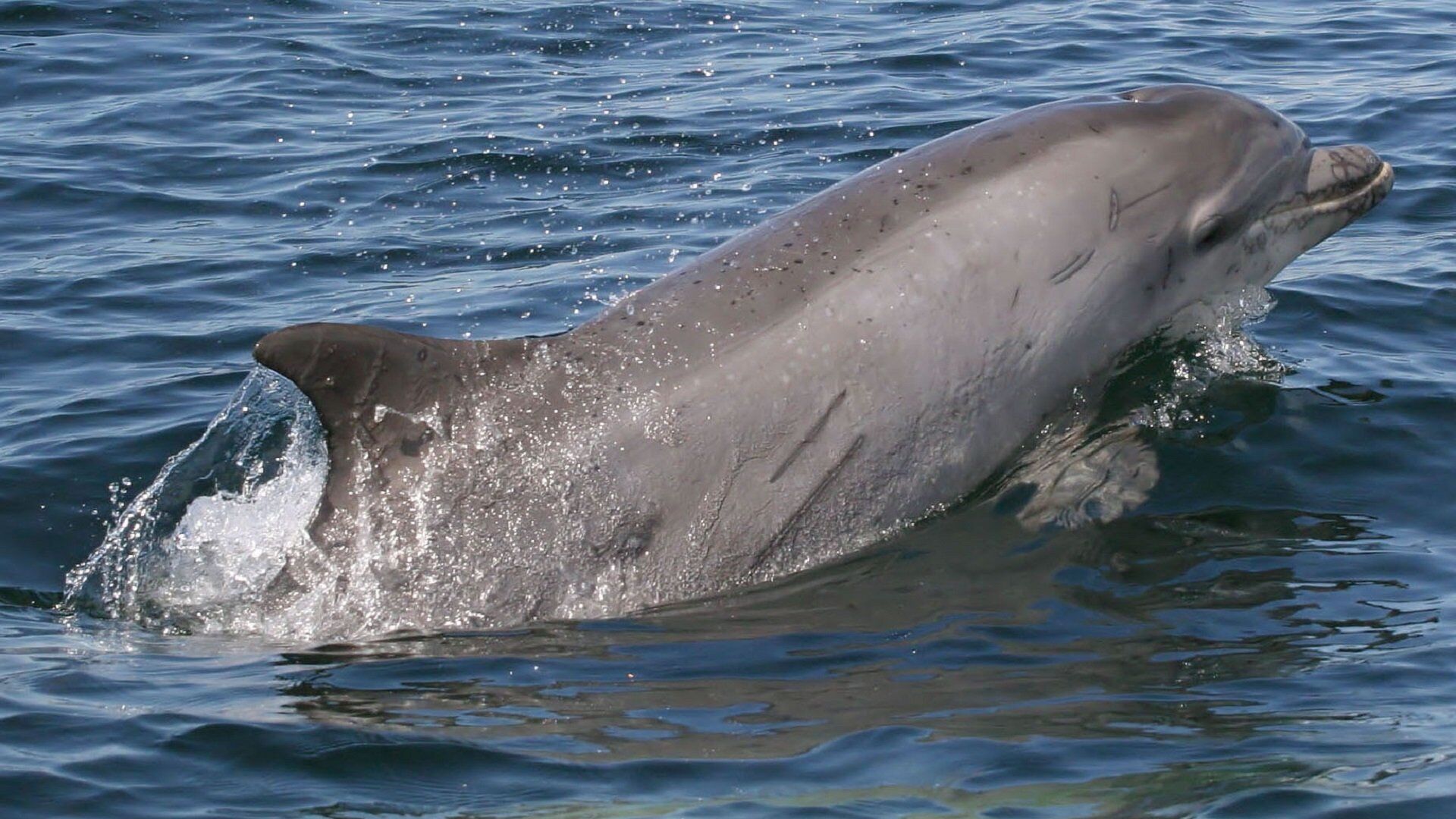Questions Raised Over Future of Whaling as Faroe Islands Slaughters 1,400 Dolphins in a Single Day

© Pixabay/CC0
Subscribe
The arguably largest slaughter of dolphins in the history of the Faroe Islands has sparked criticism even from trade professionals, who argued that it could damage the archipelago's reputation abroad and be the death knell of the whaling industry.
As a total of 1,428 dolphins were driven into a fjord on the Faroe Islands and killed in a single day this past weekend, it set in motion a hot debate about the age-long Faroese trade.
Whaling in the Faroe Islands is a hunting tradition believed to date back to the Viking Age. Since 1584, thorough archives of the catch have been maintained. While most of the catch is humpback whales, dolphins are also caught.
For instance, in 2020, the catch consisted of 576 humpback whales and 35 dolphins. However, the record catch of 1,428 dolphins is unusually large.
"I believe it is the largest number killed in a single day ever on the Faroe Islands. 1,428, that’s a very high number", editor at broadcaster Kringvarp Føroya Tróndur Olsen told Danish Radio.
While social media instantly filled with pictures of dead dolphins and red water laced with blood and users complaining of "barbarism" and "unnecessary brutality", this time the criticism went far beyond the environment and animal rights activists.
Last night's brutal killing of 1428 white-side #dolphins in the #FaroeIslands was an illegal hunt.
— Sea Shepherd US (@SeaShepherdSSCS) September 13, 2021
We applaud the locals who are using their voices to speak up against this, and we ask you to not back down.#GrindStophttps://t.co/WPyy9L2H33 pic.twitter.com/aD3yYyMfpG
Hans Jacob Hermansen, the former chairman of the Grindamannafelagid, the Faroese Whaling Association, which fights to maintain the traditional hunting method, also argued that the killing of 1,428 dolphins was over the limit.
"I'm shocked. This destroys the work we have done to protect the catch", Hans Jacob Hermansen said, as quoted by Danish Radio.
"I'm shocked. This destroys the work we have done to protect the catch", Hans Jacob Hermansen said, as quoted by Danish Radio.
The current chairman of the Faroese Whaling Association, Ólavur Sjúrdarberg, is also critical. He argued that it could damage the Faroe Islands' reputation abroad and in the long run be the death knell for the whaling business. It is time, he argued, to engage in a serious discussion on whether hunting dolphins should still be allowed.
"We must remember that we are not alone on earth. On the contrary, the world has become much smaller today, with everyone walking around with a camera in their pocket. This is a great treat for those who mean us ill when it comes to whaling", Ólavur Sjúrdarberg said.
The local chairman of the Skálafjørdur Whaling Association, where the slaughter took place, was not informed about the catch, and is one of the critics, too.
"I am shaken by how it went, and I strongly dissociate myself from it", Heri Petersen said.
"I am shaken by how it went, and I strongly dissociate myself from it", Heri Petersen said.
He argued that the number of dolphins was so high that there were far too few people ready on the beach to kill them.
"The dolphins laid on the beach for far too long and bounced before they were killed", he said.
"The dolphins laid on the beach for far too long and bounced before they were killed", he said.
By contrast, Faroese Fisheries Minister Jacob Vestergaard brushed the criticism aside.
"As I have been informed, every single animal has been killed in a responsible way", he argued.
"As I have been informed, every single animal has been killed in a responsible way", he argued.
The Faroe Islands (population 53,000) are a North Atlantic archipelago located about halfway between Norway and Iceland. Like Greenland, it is an autonomous territory and part of the Danish Realm.
On the Faroe Islands, the traditional whaling method of driving the animals into fjords is seen as a community-binding activity. Unlike many other parts of the world, whaling on the Faroe Islands is not commercial. The animals are subsequently slaughtered on the beach and the meat is distributed to all participants and families in the town.


